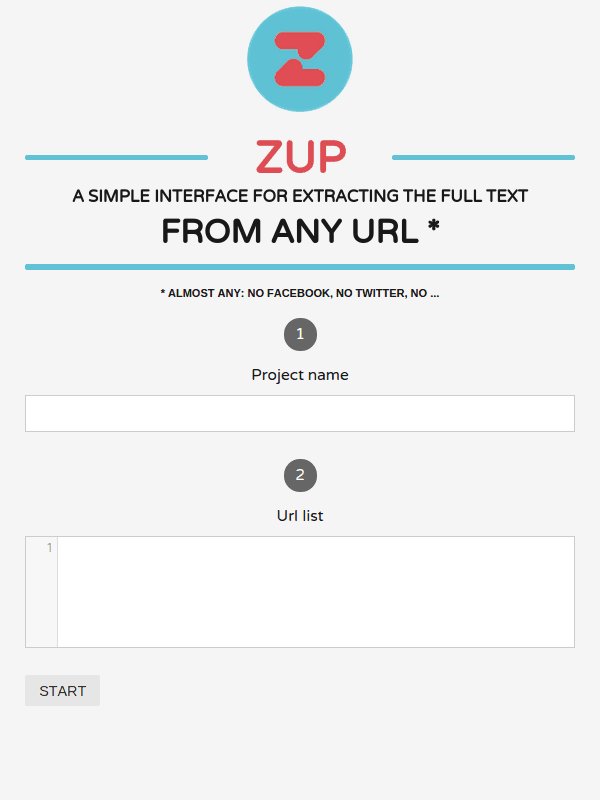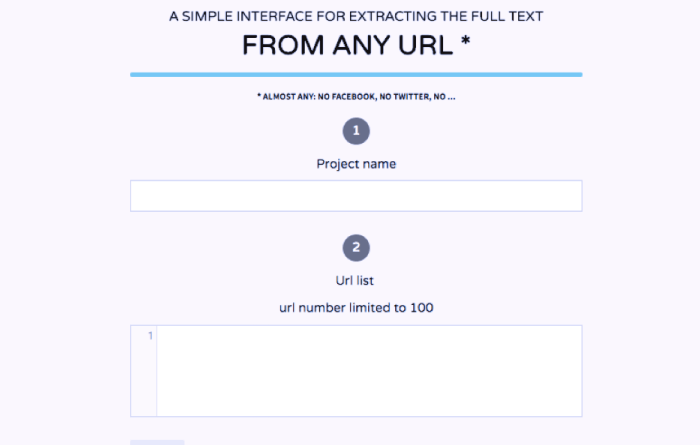Zup: Web Sitesindeki Tüm Metinleri Otomatik Olarak Dışa Aktarır!
Zup ile web sitelerindeki tüm metinleri otomatik olarak dışa aktarabilirsiniz.
Kurulumu aşağıda yer alana aşamaları inceleyerek Github adresinden yapabilirsiniz:
https://github.com/medialab/zup

installation
Clone the repository and its submodules
clone --recursive https://github.com/medialab/zup.git zup
If –recursive options is not available, consider using these command to install submodules
cd zup
git submodule init
git submodule update
Create and activate a dedicated virtualenv for zup. If you’re not sure, please follow this how-to
Install then the dependencies via pip packages:
cd zup
pip install -r requirements.txt
Some python package that zup requires, like lxml, needs some other libraries to be available. On unix environment, make sure the development packages of libxml2 and libxslt are installed.
sudo apt-get install libxml2-dev libxslt1-dev python-dev
In case, you are using Ubuntu/Lubuntu 13.04 or Ubuntu 13.10 and having problem with “/usr/bin/ld: cannot find -lz”, you may need also install zlib1g-dev package.
sudo apt-get install zlib1g-dev
Configuration
Once installation has been completed, there is one more step: configuration.
cd zup
cp local_settings.py.example local_settings.py
And modify these two lines according to your own virtualenv
SECRET_KEY = 'your own generated secret key'
PYTHON_INTERPRETER = '<your virtualenv path>/.virtualenvs/zup/bin/python'
Also define in which directories you want to install Django’s static files:
STATIC_ROOT = '<your own path>/static'
MEDIA_ROOT = '<your own path>/media'
Run
Zup needs a light sqlite database
cd zup
python manage.py syncdb
python manage.py test
python manage.py collectstatic
Test your installation with
python manage.py runserver